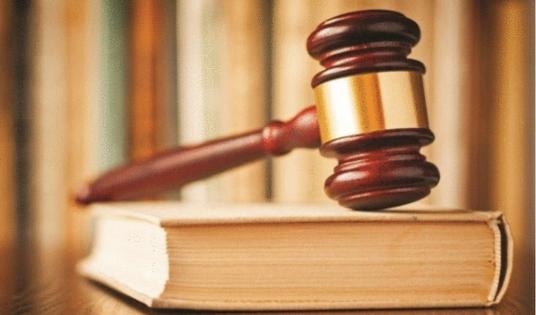Judge blocks Trump administration long-term from arresting Columbia student Yunseo Chung
Published in News & Features
NEW YORK — A Manhattan federal judge on Thursday issued a preliminary injunction blocking the Trump administration from detaining Columbia University student Yunseo Chung, a green card holder who sued to stop her imminent arrest.
From the bench, Judge Naomi Reice Buchwald also denied the federal government’s motion to dismiss Chung’s case, which accuses immigration authorities of retaliation against her free speech rights to defend Palestinians and college students facing discipline for their advocacy.
“This federal court has barred ICE from detaining Miss Chung longer-term as we litigate her important constitutional questions,” said Ramzi Kassem, co-director of The CLEAR Project at CUNY Law School.
Chung’s case differs from those of other pro-Palestinian noncitizen students targeted by the Trump administration in a key way: She sued before she could be picked up by federal agents. But rather than start removal proceedings, the Trump administration has maintained the threat of arresting Chung.
Kassem said the preliminary injunction would offer the rising college senior “some degree of reassurance that she can continue to go about her daily life, her studies, her work, her career plans as we fight on in court.” Chung is currently in New York City starting a summer internship.
“Our understanding is that Miss Chung is interested in legal studies and becoming a lawyer, and we think she’d be a great lawyer,” he said.
Last week, Buchwald offered a path forward that she described as a “win-win”: The government could begin the deportation process against Chung if it plans to do so, but not arrest her — sparing her the “pejoratives,” as she put it, of being taken into custody.
Buchwald said the government could start proceedings by serving either Chung’s home address via mail or her lawyers. She suggested if the government were to try to avoid her jurisdiction, it would reflect poorly on their motivations.
“What (the government) wants to do is arrest her and move her to Louisiana,” Kassem told reporters, “and put her in removal proceedings there, so that it can avoid the jurisdiction of this court, so that it can have its removal case under Fifth Circuit case law, which it seems to prefer,” referring to a more conservative appeals court in the South.
In a filing late Wednesday — two minutes before a court-issued deadline, according to the judge — the government indicated it would not agree to an alternative. The Department of Homeland Security did not return a request for comment on Thursday afternoon.
“The answer is no,” read the letter to the court, submitted by Manhattan U.S. Attorney Jay Clayton. “ICE has broad discretion over actions and decisions to conduct arrests and initiate removal proceedings.”
Buchwald from the bench on Thursday suggested the government had made misrepresentations in court and in filings about whether the feds had a notice for Chung to appear in immigration court — going so far as to read statements from court transcripts back to the lawyers that made them. Specifically, she said she was disappointed because she did not think there was “total candor” with the court by the feds.
The judge thought aloud that it seemed the government was not focused on starting the deportation process: “If you’re sincere about the need to have removal proceedings, you have a way,” she added. “You just choose not to do it. And then, the question comes up, ‘Why not’?”
Chung, 21, was arrested on March 5 outside a brief occupation of the library at Barnard College, a women’s college affiliated with Columbia. Students, including Chung, were calling on Columbia to divest from Israel and protesting the expulsions of three classmates. She was released with a ticket ordering her to appear in court.
Chung and recent Columbia graduate student Mahmoud Khalil were named in a memo by Secretary of State Marco Rubio that claimed their presence in the country undermines U.S. foreign policy interests, the nonprofit news outlet The City first reported. After attempts to arrest Chung at her dorm room and her parents’ home failed, she filed what is known as a habeas corpus petition, challenging the government’s efforts as unlawful.
Buchwald issued a temporary restraining order against the government at the end of March. Thursday’s preliminary injunction made that relief more long term and acknowledged the irreparable harm that Chung could otherwise face.
Before issuing her order, Buchwald at times appeared frustrated by the responses she received from the Trump administration lawyers.
“This is a new world,” the federal judge said.
©2025 New York Daily News. Visit nydailynews.com. Distributed by Tribune Content Agency, LLC.







Comments